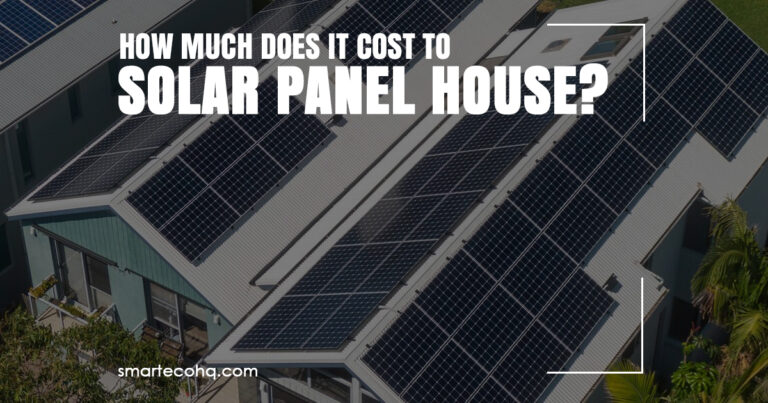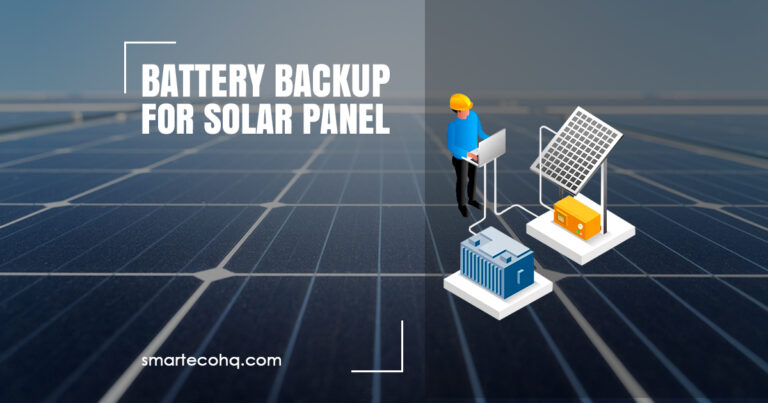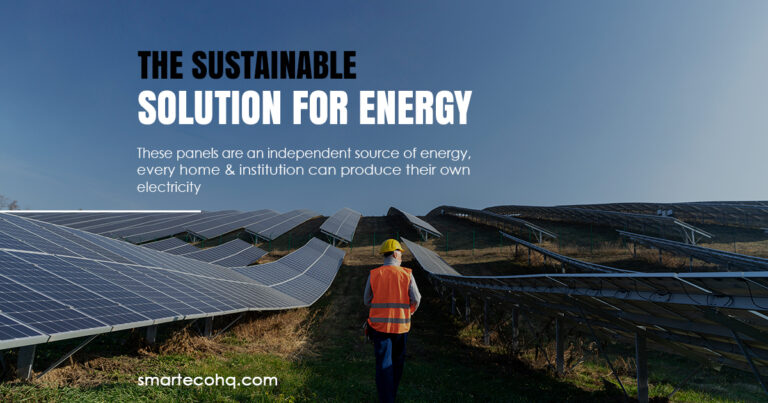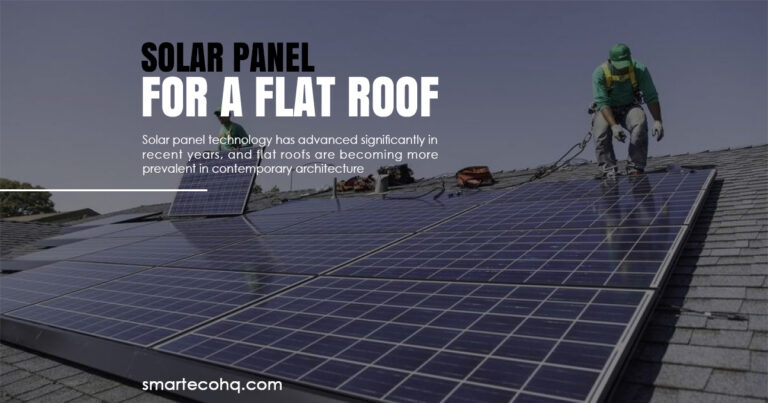10 Compelling Benefits Why Should You Go Solar?
Are you tired of receiving high electricity bills and looking for a solution to getting rid of this stress? If so,there’s a solution for both your bills and stress reduction. Consider going solar, as the energy produced is sustainable and renewable.
In this blog, we’ll explore the benefits of solar energy and the reasons to go solar.
Solar energy is renewable energy, and its two main benefits include financial savings and environmental conservation. Furthermore, the following are some compelling reasons why you should go solar:
1. Financial benefits of Solar Panels:
The foremost reason why switch to Solar energy is that you can generate your own electricity to meet your electric power needs. In this way, you use less electricity from the grid stations, which can help you save money on your electricity bills. According to the U.S. Department of Energy, one can save $10,000 to $30,000 over the lifetime of his solar system.
Furthermore, solar panels have long-term energy savings for you, as they can last for more than 30 years. You could increase this time with proper care and Maintenance.
2. Rise in your Property Value:
Adding to your knowledge, a certain amount of rise has been shown in the price of properties with Solar Panel systems in the real estate market. According to a study by the Lawrence Berkeley National Laboratory, “A Solar Photovoltaic (PV) System can add $15,000 to the resale value of a home.”
That’s why solar energy is a good investment for both environmental and financial reasons.
3. Renewable Energy Source:
Another reason to get solar panels installedin your buildings is that solar energy is renewable, meaning it’s not going to vanish or become extinct like other energy resources such as coal, oil, etc.
As the International Energy Agency (IEA) notes, “solar is the most abundant and versatile of all renewable energy sources.”
By generating your electricity from the sun, you can help reduce your reliance on fossil fuels, which are finite and emit greenhouse gasses that contribute to climate change.
4. Reduce Carbon Footprint:
According to the study of the National Renewable Energy Laboratory, “The Average Residential Solar Panel system offsets about 3-4 tons of carbon emissions per year—the equivalent of planting over 100 trees annually.” By reducing your dependence on fossil fuels. and generating your electricity from the sun, you can help reduce your environmental impact.
By going solar, you can do your part to help combat climate change. Using solar energy can mitigate the effects of climate change.
5. Government Incentives:
To make the initial cost burden easy governments around the world are offering incentives to make solar panel installation affordable and within everyone’s reach. For example, the federal solar tax credit in the United States allows homeowners to claim a credit for up to 26% of the cost of their solar system. These incentives can help make solar benefits more affordable and accessible for you.
6. Energy Independence:
By switching to solar energy systems and fulfilling your energy needs with solar energy, you’ll have to rely less on grid stations. In this way, you can achieve energy independence. As the NREL explains, “with solar energy, you can produce your own electricity, reduce your dependence on the utility company, and protect yourself from utility rate hikes and power outages.”
This means that even during power outages or emergencies, you’ll still have access to reliable electricity.
7. Low Maintenance Costs:
You’ll have no headache as Solar panels require very little maintenance, about twice a year. Most of the time, they need to be cleaned, which is a DIY job. This makes them a cost-effective option for energy production.
8. Long Lifespan:
Normally, solar panels come with a warranty of 25-30 years, making them a cost-effective option for homeowners and businesses looking to save money on energy bills. Solar Panels typically have a Degradation Rate of 0.5-0.8% per year, which means they’ll continue to produce energy at a high rate for decades.”
Their long lifespan makes them a long-term investment.
9. Job Creation:
With the growth of the solar industry, there are more job opportunities. According to the National Renewable Energy Laboratory, “the solar industry employed 231,474 workers in the United States in 2020.” More people are finding employment in this field.
By going solar, you can help support the growth of this industry and create jobs in your community.
10. Energy Security:
By going solar, you’re generating your own electricity, achieving energy security, and reducing your vulnerability to power outages and energy shortages. Having solar panels ensures you have a reliable source of power even during natural disasters and emergencies.
So what else do you need if you’re getting energy security?
Finally, in the above blog post, “Why to Go Solar,” we’ve discussed that going solar is a great future investment and an environmentally responsible choice. It reduces your dependence on traditional energy resources, saves your money on utility bills, increases property value, and provides energy security during emergencies. With Government Incentives, decreasing panel costs, and increasing efficiency, now is the time to make a positive impact on the planet and your finances by going solar.
FAQs
Q1. What are the financial benefits of solar panels?
You can save money on electricity bills by generating your own power with solar panels. Also, solar panels can last over 30 years, providing long-term energy savings.
q2. How does going solar increase property value?
Homes with solar panel systems have higher resale value, with an increase of up to $15,000. Investing in solar energy benefits both the environment and your finances.
q3. Why is solar energy considered renewable?
Solar energy comes from the sun and will never run out, unlike finite resources like coal or oil. By using solar power, you can reduce your reliance on fossil fuels and help combat climate change.






